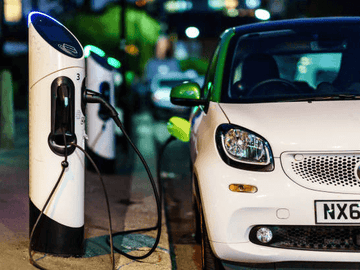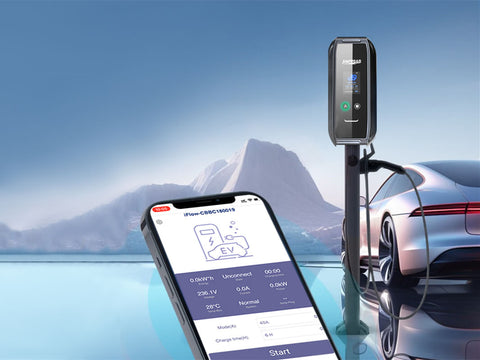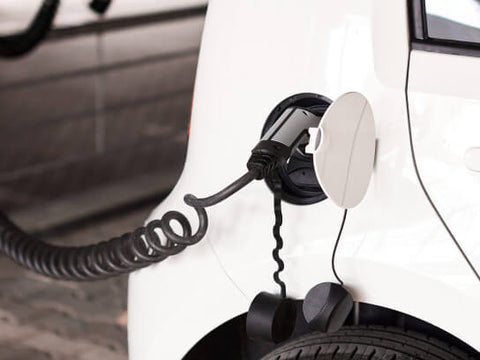
Fast charging has revolutionized the electric vehicle (EV) industry, offering convenience and efficiency. However, a pertinent question looms: does this rapid charging method come at a cost to the battery's longevity? Understanding the effects of fast charging on EV battery lifespan is crucial for both current EV owners and prospective buyers. In this article, we delve into the complexities of fast charging, exploring how it differs from conventional charging methods and its potential impact on battery health. By examining research findings, real-world experiences, and best practices, we aim to provide clarity on this important topic, empowering readers to make informed decisions regarding their EV charging habits and battery maintenance strategies.
Understanding Fast Charging
How does fast charging differ from conventional charging methods?
Fast charging differs from conventional charging methods primarily in terms of charging speed. While conventional charging methods, such as EVSE home charger, typically delivers power at a slower rate, fast charging systems can provide a much higher charging rate, allowing EVs to recharge significantly faster. Fast charging is designed to replenish a large portion of an EV's battery capacity in a relatively short amount of time, making it ideal for on-the-go charging or long-distance travel where time is of the essence.
What technologies are used in fast charging systems?
Fast charging systems employ various technologies to achieve rapid charging speeds while minimizing heat buildup and battery degradation. One common technology used in fast chargers is high-power charging infrastructure, which delivers electricity at higher voltages and currents than conventional chargers. Additionally, fast charging systems often incorporate advanced cooling mechanisms to dissipate heat generated during charging, helping to maintain battery temperature within safe limits. Some fast chargers also utilize communication protocols such as CHAdeMO, CCS, or Tesla Supercharger, which enable seamless communication between the charger and the EV for optimized charging performance. Overall, fast charging systems leverage a combination of high-power infrastructure, advanced cooling, and communication protocols to provide fast and efficient charging solutions for EV owners, enhancing convenience and usability while on the road.
Factors Influencing Battery Degradation

Does the rate of charging affect the battery's overall health?
Yes, the rate of charging can indeed affect the overall health of an EV battery. Rapid charging, such as fast charging, subjects the battery cells to higher levels of stress compared to slower charging methods. The rapid influx of energy during fast charging can lead to increased internal resistance and temperature rise within the battery, which, over time, can contribute to accelerated degradation. Conversely, slower charging methods, such as EVSE home EV chargers, provide a gentler charging experience, resulting in less strain on the battery cells and potentially extending their lifespan.
Are there specific factors during fast charging that contribute to battery degradation?
Yes, several factors during fast charging can contribute to battery degradation. One key factor is the higher charging currents used in fast charging, which can generate more heat within the battery cells. This elevated temperature can accelerate chemical reactions within the battery, leading to increased degradation of the electrode materials and electrolyte. Additionally, fast charging often involves charging to higher states of charge (SOC) in a shorter amount of time, which can cause additional stress on the battery cells. Furthermore, repeated cycles of fast charging can exacerbate degradation, as the cumulative effects of rapid charging over time can result in diminished battery performance and capacity. Overall, while fast charging offers convenience and efficiency, it's essential to be mindful of its potential impact on battery health and to balance the benefits of rapid charging with the need to preserve the long-term integrity of the EV battery.
Research and Studies
Fast charging is a lifesaver for our busy lives, but whispers say it might hurt our phone batteries. Let's see what research tells us:
What do studies and research suggest about the effects of fast charging on battery lifespan?
There's ongoing research, but results are mixed. Some studies suggest fast charging can slightly reduce battery lifespan over time, especially when frequently charging to 100%. This is because fast charging generates heat, which can stress batteries. ([Source: Battery University website])
Have there been any conclusive findings on the correlation between fast charging and battery degradation?
Experts haven't found a clear "yes or no" answer. Modern phones have software to manage heat and charging cycles, which might lessen the impact of fast charging. Additionally, research by Recurrent Motors on Tesla cars showed minimal battery degradation even with frequent fast charging (Source: EVESCO - Power Sonic website).
Fast charging likely has a small impact on battery lifespan, but it's not a deal-breaker. For most users, the convenience of a quick charge outweighs the potential downsides. However, if you plan to keep your phone for several years, consider using a regular charger for overnight charging to minimize stress on the battery.
Best Practices for Battery Health

When it comes to maintaining the health and longevity of your electric vehicle (EV) battery, implementing best practices is essential. Let's explore some recommendations and strategies for preserving battery health, especially concerning fast charging.
What are some recommendations for minimizing the impact of fast charging on battery lifespan?
To minimize the impact of fast charging on battery lifespan, several recommendations can be followed. Firstly, consider using fast charging sparingly and reserve it for situations where it's truly necessary, such as long-distance travel or emergencies. Whenever possible, opt for slower charging methods, such as level 2 EV chargers, for day-to-day charging needs. These chargers provide a more gradual charging experience, reducing the stress on the battery cells and helping to preserve their longevity. Additionally, avoid charging the battery to its maximum capacity during fast charging sessions. Instead, aim to maintain the battery's state of charge within a moderate range to minimize stress on the cells.
Are there strategies for balancing the need for fast charging with preserving battery health?
Yes, there are strategies for balancing the need for fast charging with preserving battery health. One approach is to incorporate a mix of charging speeds into your charging routine. While fast charging offers convenience when time is limited, supplementing it with slower charging sessions using a level 2 EV charger, which's including the Tesla destination charger, can help mitigate the overall impact on battery health. Additionally, consider leveraging scheduling features available in many EV charging stations or vehicle charging systems. This allows you to optimize charging times to take advantage of slower charging rates during off-peak hours, reducing the reliance on fast charging during high-demand periods. By adopting a balanced approach to charging and incorporating slower charging methods into your routine, you can enjoy the benefits of fast charging while safeguarding the long-term health of your EV battery.
Future Developments and Technologies

Are there advancements in fast charging technology aimed at reducing battery degradation?
Yes, advancements in fast charging technology are continuously being made to address concerns regarding battery degradation. One promising development is the introduction of smarter and more efficient charging algorithms. These algorithms aim to optimize charging parameters dynamically based on factors such as battery temperature, state of charge, and charging history. By adjusting the charging profile in real-time, these systems can minimize stress on the battery cells and reduce the risk of degradation during fast charging sessions.
Furthermore, research into new battery chemistries and materials is ongoing, with the goal of designing batteries that are more resilient to the rigors of fast charging. For example, solid-state batteries, which use solid electrolytes instead of liquid electrolytes, show promise in terms of faster charging rates and improved longevity. Additionally, advancements in thermal management systems are being explored to better regulate battery temperature during fast charging, further mitigating the risk of degradation.
What developments can we expect in the future regarding fast charging and battery longevity?
In the future, we can expect to see continued progress in fast charging technology, with even faster charging rates and improved efficiency. As EV adoption continues to grow, there will be increasing demand for faster and more convenient charging solutions. Manufacturers are likely to invest in expanding charging infrastructure, including the deployment of ultra-fast charging stations capable of delivering extremely high charging rates.
Moreover, advancements in vehicle-to-grid (V2G) technology may also play a significant role in shaping the future of fast charging. V2G systems enable EV batteries to not only receive energy from the grid but also to discharge energy back into the grid when needed. This bidirectional flow of energy could help balance grid demand and supply, while also providing additional revenue streams for EV owners.
Overall, the future of fast charging and battery longevity looks promising, with ongoing innovation and advancements aimed at making EVs more accessible and sustainable than ever before.
Balancing Convenience and Longevity
While fast charging can potentially accelerate battery degradation, there are strategies to mitigate its impact and preserve battery health. By understanding the factors influencing degradation and implementing best practices, such as avoiding frequent fast charging and incorporating slower charging methods when possible, EV owners can minimize the risk of premature battery aging.
The relationship between fast charging and battery health is complex. While fast charging offers convenience, it can lead to increased stress on the battery cells, potentially accelerating degradation over time. However, by using fast charging judiciously and supplementing it with slower charging methods, such as the AMPROAD portable dual-use level 1 and level 2 EV charger, EV owners can strike a balance between convenience and battery longevity. Additionally, advancements in charging technology and battery management systems are continually being made to optimize charging protocols and reduce the impact of fast charging on battery health. Ultimately, EV owners should prioritize battery care and follow best practices to ensure their batteries remain healthy and perform optimally throughout their lifespan.


